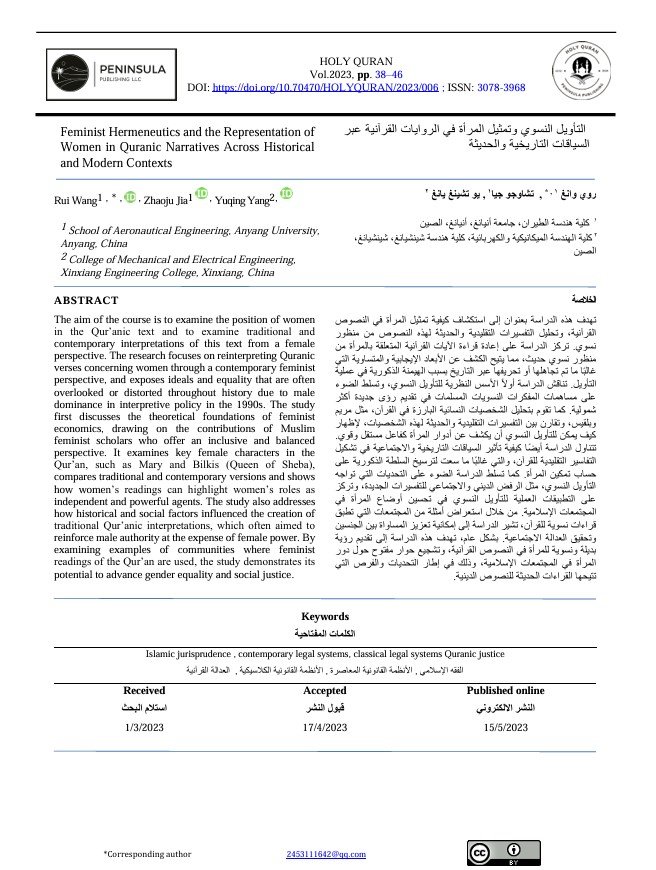Feminist Hermeneutics and the Representation of Women in Quranic Narratives Across Historical and Modern Contexts
Main Article Content
Abstract
The aim of the course is to examine the position of women in the Qur’anic text and to examine traditional and contemporary interpretations of this text from a female perspective. The research focuses on reinterpreting Quranic verses concerning women through a contemporary feminist perspective, and exposes ideals and equality that are often overlooked or distorted throughout history due to male dominance in interpretive policy in the 1990s. The study first discusses the theoretical foundations of feminist economics, drawing on the contributions of Muslim feminist scholars who offer an inclusive and balanced perspective. It examines key female characters in the Qur’an, such as Mary and Bilkis (Queen of Sheba), compares traditional and contemporary versions and shows how women’s readings can highlight women’s roles as independent and powerful agents. The study also addresses how historical and social factors influenced the creation of traditional Qur’anic interpretations, which often aimed to reinforce male authority at the expense of female power. By examining examples of communities where feminist readings of the Qur’an are used, the study demonstrates its potential to advance gender equality and social justice.
Article Details

This work is licensed under a Creative Commons Attribution 4.0 International License.
